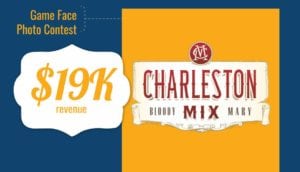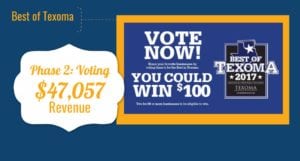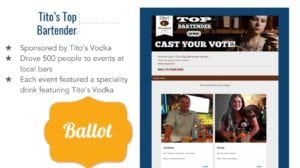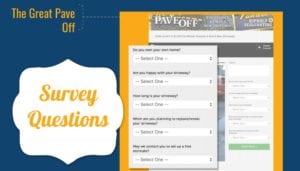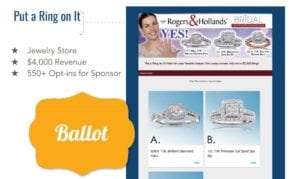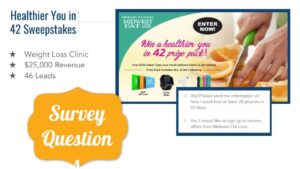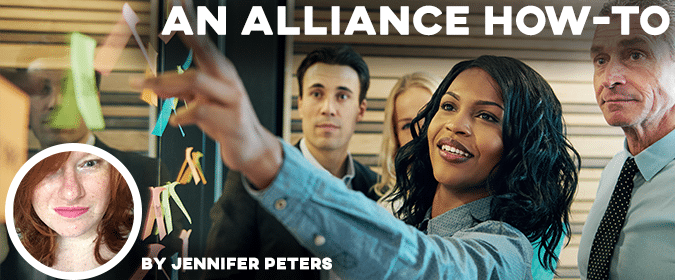
Editor’s Note: The Alliance only endorses responsible data-handling in which readers are proactively informed of what data is being collected and how it will be used.
I never win contests. I am not lucky, but I still try. I join StepBets and buy lottery tickets and tag my friends in every Instagram contest that shows up in my feed. And do I win? Almost never. But does that stop me from entering? No way! Because I could win. And that’s what contest ad campaigns are all about — that feeling of excitement and that drive to engage.
I spoke with Julie Foley and Liz Crider Huff, of Second Street, about how you can add these contests to your advertising mix to draw in readers — and big-time advertising revenue.
Advertisers want to build relationships with your readers and have a way to market to them directly at a time when that person is most receptive to their offerings. The contest advertising campaign both encourages engagement with readers, and collects data from those readers.
If your readers will fill out a survey or agree to provide advertisers their email address, you’re providing something nearly as valuable as a sale — a chance to market directly to that person, and encourage a sale down the line. And with Google and Facebook hoovering up all the data your readers could possibly share, it’s become much harder for advertisers to get any information on their potential customers. That’s where contests come in.
“If you focus on email, there’s a lot of revenue to be had,” Huff explains. “It’s the best way to get people to engage with your content, and you don’t have to rely as much on social media.”
“You don’t want to be worrying what Mark Zuckerberg is doing,” Foley adds. “When you control your database, you control your destiny.”
But to build up that database, you have to give readers something to engage them. Quizzes, surveys and ballots are all ways to do this. This “middle-of-the-funnel” approach creates a solution that advertisers need most, and which local media is uniquely positioned to provide.
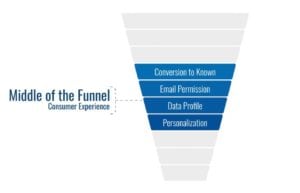
One of the best ways to start with this approach is to monetize something your media company is likely already doing: a best-of list. “If you do nothing else, ballots are a huge revenue opportunity that everyone should be doing,” she says.
To successfully monetize a best-of ballot, combine your print and digital products. By putting your ballots online, you make it easier for readers to submit entries, and for businesses to build up grassroots efforts around nominations. It also gives you the opportunity to sell sponsorships for the ballots, either as a whole or for different categories. Later, you can create a digital list of winners, creating yet another sponsorship opportunity, since you can have winners buy ads in the digital product or pay for enhanced listings.
Whatever you’re doing digitally for your promotion, add a print component if you can. Have paper ballots for the people who want them. Publish your best-of winners in a special print section before it goes on your website. Utilize all of your channels to encourage the most engagement and draw in the most revenue.
As a reminder, when presenting readers with surveys or quizzes or any kind of contest that asks them to provide their personal information, you should be up front about the fact that you and/or your advertising partner will be using that information later to reach out to them. It is imperative that you be honest with your readers about why you are collecting their information and how you will use it, and that you stay true to your word, or you risk losing the trust of your audience.
Another unique element of local coverage that can be monetized is high-school sports. High-school athletics has a huge local audience, from the student athletes to their parents and families to school alumni. And chances are, you’re already running “athlete of the week” stories or fun contests, so why not monetize that coverage?
You can’t go wrong with kids and pets and high-school sports,” Foley says.
Sports coverage is perfect for a school spirit photo contest, a “best mascot” ballot, or features on the school marching band or cheer squad. And there are a lot of advertisers who want to get in front of this audience. Does the local bank want to promote student loans or college savings accounts? Have them sponsor a story or series, or a contest. Get the local college to partner on a quiz. And get the community involved. If your contest pits one school against another, people will get involved and they will participate. “Anything that has a great prize for the school will drive engagement,” Foley adds.
Making the leap from top-of-the-funnel ads to middle-of-the-funnel is not the easiest thing to change, and it involves more work. Huff recommends having conversations with your advertisers to find out what they want, and be willing to customize your offering to each client. It’s not as cut-and-dried as the typical print ad, but having the conversation at the start will lead to real results.
Where responses to top-of-the-funnel ads are hard to quantify, middle-of-the-funnel projects allow you to bring real data to your clients. If your readers are filling out a survey to enter a contest, they’re telling your advertiser about themselves. They’re saying, “I may need to buy a new car in six months,” or “I’m in the market for a hearing aid,” or “I’d like to buy a fishing license” (all successful promotional campaigns Huff and Foley have run), and your advertisers are getting their product in front of the people who will actually be compelled to buy it.
For more ideas on how you can branch out and find new promotional advertising opportunities for your clients, you can check out the slide deck Huff and Foley used during their presentation at the 2018 Mega-Conference. In it, you’ll find success stories about their clients, and ideas for partnerships you can aim for with your own promotions.
Are you already running contests and monetizing them? We want to know about it! Tell us what contests you’ve run and how you engage your readers with promotional ads. You can email jennifer@newsmediaalliance.org, or find me on Twitter at @EditrixJen. And when you get in touch, let us know what other media business tips and tricks you’d like to learn about this year!

Jennifer Peters is former content manager of the News Media Alliance.

